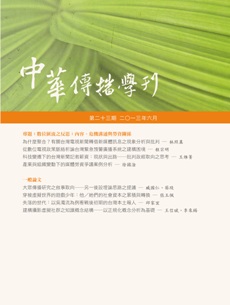 閱覽人數: 5640
閱覽人數: 5640
June
2013
No. 23
數位匯流之反思:內容、危機溝通與勞資關係
Content, Crisis Communication and Labor Relations: Reflections on Digital Convergence頁數:73 - 124
作者(中)
王維菁
作者(英)
Wei-Ching Wang
關鍵詞(中)
加薪制度、新聞產業、新聞勞動技能、傳播資訊科技(ICTs)、 薪資、薪資水準
關鍵詞(英)
wage increase system, news industry, news labor skills, information and communication technologies (ICTs), wage, wage level
中文摘要
新傳播資訊科技(ICTs)運用與數位匯流趨勢下,台灣新聞產業市場結構及新聞勞動技能要求逐步轉變。在市場競爭惡化與新聞勞動技術降級交相作用下,台灣新聞記者之薪資保障及薪資趨勢也出現明顯惡化。然而,薪資制度作為一種社會形構,是特定政經情勢、經濟制度因素與產業市場作用等聚合下的產物,因此,本文基於批判政經學派對薪資問題應重回權力與政策思考之觀點,試圖從建構政策化公正客觀之加薪制度以及強化台灣新聞產業體質兩面向來構思台灣記者薪資問題之改善方向。
英文摘要
Because of the ongoing trendfor expanding new information, developing information communication technologies (ICTs), and increasing digitization, the market structure and labor skill levels of the Taiwanese news industry have changed substantially. The combination of increased market competition and reduced journalism skills has led to declining wages for Taiwanese journalists. However, the wage system is a social construct that is influenced by specific political economy factors, the behaviors of economic institutions, and the effects of the industrial market. Therefore, we adopt a critical political economy approach to propose that social wage problems result from power issues, and that the solutions to these problems are based on policy decisions. In response to the declining wages of Taiwanese journalists, this study proposes objective policies to systematize wage increases and strengthen Taiwan’s news industry.